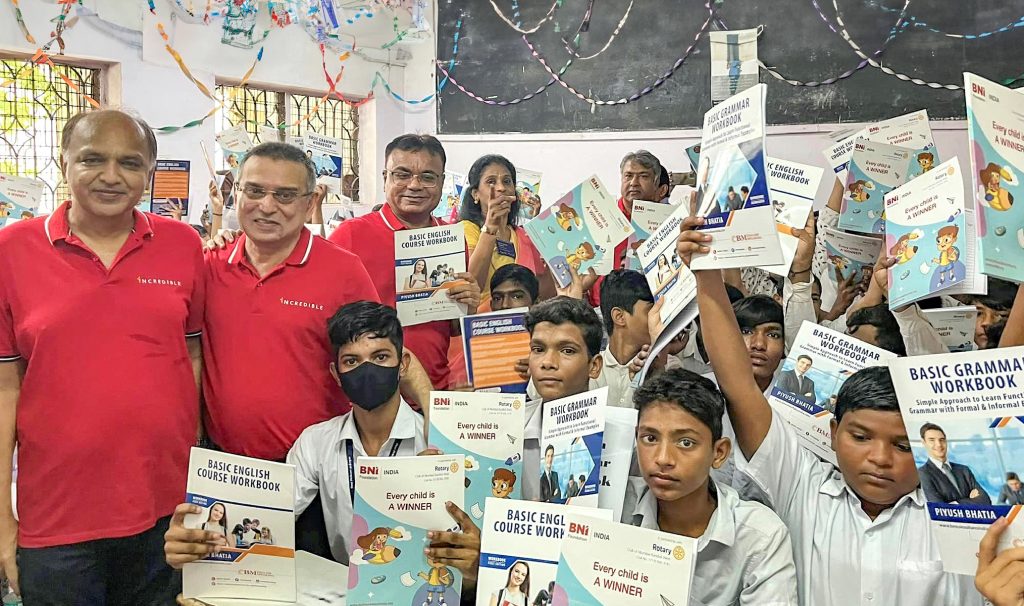Changing lives with English-speaking capability
In the underbelly of India’s most glittering metro, Mumbai city, there are tens of thousands of bright, intelligent and ambitious teenagers from underprivileged families, who manage to get into reasonably decent schools offering education in Marathi, Hindi or Gujarati. They have an excellent academic record till they pass Class 10. “But when it comes to going to college (Class 11 and 12), many of them are reluctant to go in for higher education because they lack the confidence to interact with other students in English, of which they have little knowledge,” says Vinay Bhat, past president of the Rotary Club of Mumbai Kandivli West, RI District 3141.
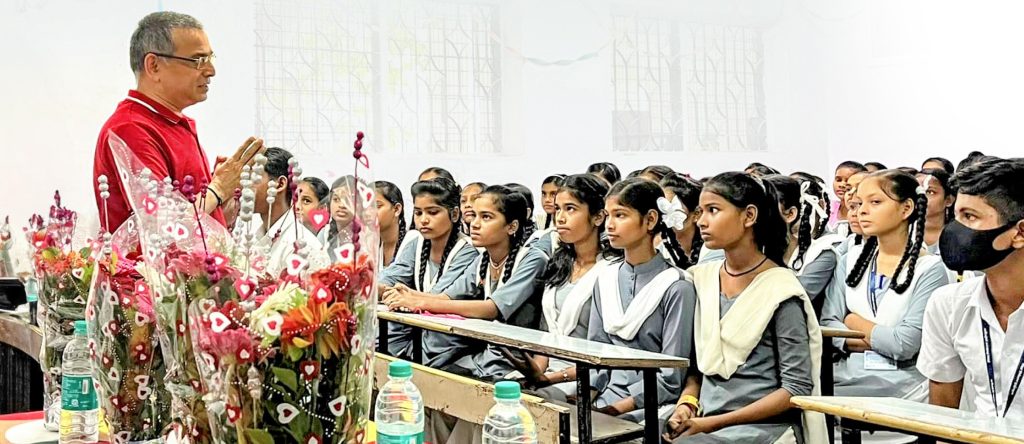
Curiously enough, he discovered this when in 2008–09, as director of special projects in his district, a small team of Rotarians decided to promote morals and ethics among students in schools attended by children from lower middle class families. These schools offered education in either Marathi or Hindi medium. “We printed beautiful notebooks which had very small inspirational stories of famous people, who achieved greatness because they stuck to their values and ethics. Various people sponsored this project and I was in charge. We went to 22 schools in the region, and talked to students,” recalls Bhat.
He’d personally hold workshops for these students where short inspirational video clips were shown of great people. The idea was to train young minds to focus on what they would like to become as adults.
After a year of doing this project, when he interacted with the principals of these schools, “they described to us how even the brightest of their students face difficulty when it comes to English, and many of them literally drop out from the education system because of their fear of English. He said that quite a few of them absolutely refuse to study further because they do not want to face any embarrassment in front of their peers or professors because they can’t speak English,” says Bhat. Those brave enough to venture into Class 11, soon face the frustration of their grades plummeting because they do not know English.
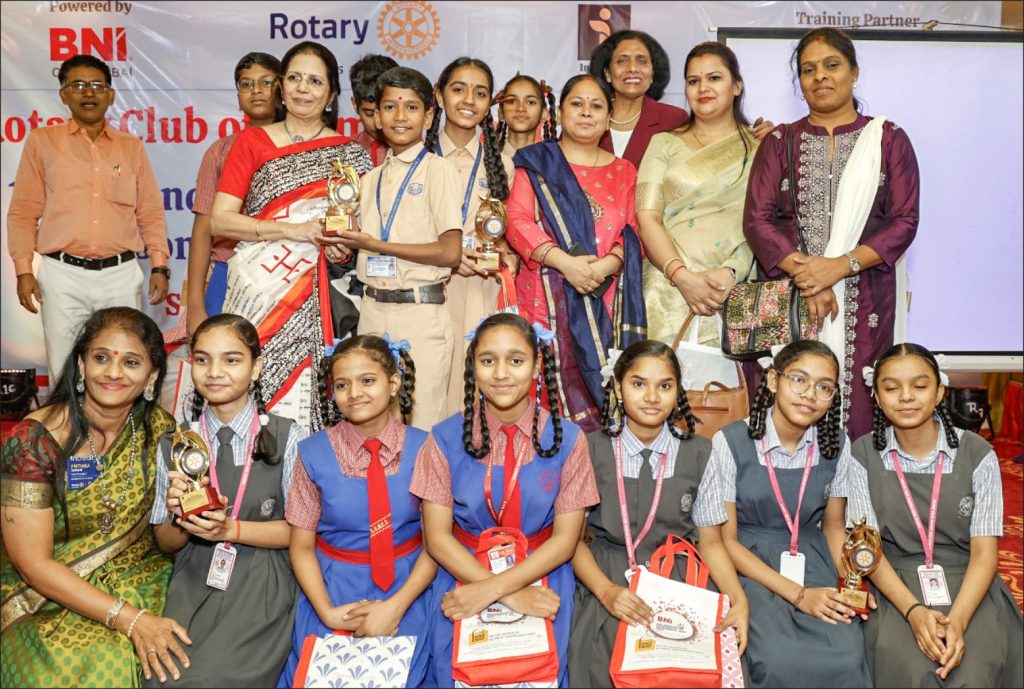
He explains that in the Kandivali area there is a sizable population living in slum areas of Laljipada, Bunder Pakhadi, Charkop, Sainagar, Poisar etc and there are over 20 to 30 schools giving education in Marathi, Hindi and Gujarati. These schools, aided by the BMC and the state government, cater to over 20,000 children. The teachers’ salaries are paid by the government, and many of the schools do not have even a proper concrete building. Most of the children of these vernacular schools quit their education after Class10 for the primary reason that college education is in English.
When Bhat learnt that even the most brilliant students who pass with flying colours in their Class 10 exams, scoring nearly 90 per cent, refuse to go to college because of their English deficiency, “I thought why not organise an English-speaking course with the help of specific training agencies to give these students some skill in spoken English.” This was the genesis of what was to become the club’s signature project for 14 years.
Adds Bhavin Toprani, another past president of this large club with 94 members, and PR director for 2023–24, “We chose to conduct these spoken English classes when the students are in Class 9, because in Class 10, they have to prepare for their Board exams, and do not have much time for extra activities.”
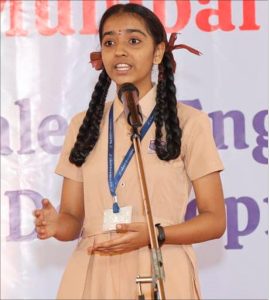
The team identified the B N Institute which conducts classes in spoken English, and in the first year this was done in five schools identified by the Rotarians. In 2011–12, when Bhat became the club president, “I took this up as my main project; my board said you have to raise the money, and at that time it cost only around ₹30,000 per school, so I raised the funds by asking my friends, clients, etc to donate.”
These classes worked so well in improving the confidence level of bright youngsters, that president after president of the club continued with the project which, in essence is also a personality development project, as it was literally transforming lives. For the first 10–11 years the club managed to raise the money required — now it costs ₹50,000 per school. But for the last three years the BNI Foundation has come forward to sponsor the entire project asking the Rotarians to focus on the operational aspect of the project, and volunteering to put in all the money required.
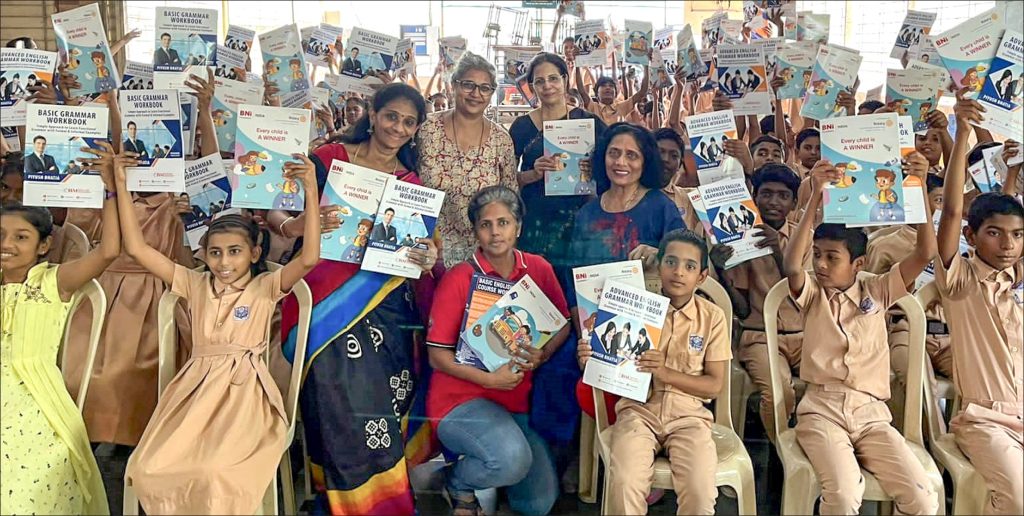
The results have been excellent, and the club has received thank you letters from principals of schools, detailing stories of “students trained in spoken English by us, who have gone on to become doctors and other professionals, and some of them have even gone overseas for higher education,” beams Bhat. It has also gone ahead to win many awards from the district.
When I express the hope that girls are also benefitting from this project, Bhat delights me with the disclosure that “the majority of the beneficiaries of this flagship project of our club are girls. The reason is very simple; the psychology in families with limited money is to send the boys to English medium schools while the girls go to the vernacular schools! So in all Marathi/Hindi medium schools, the larger majority of the students are girls. And we find that girls are very sincere, focused and hard-working and once they get the additional benefit of knowledge in spoken English, they do very well in higher studies,” says Bhat.
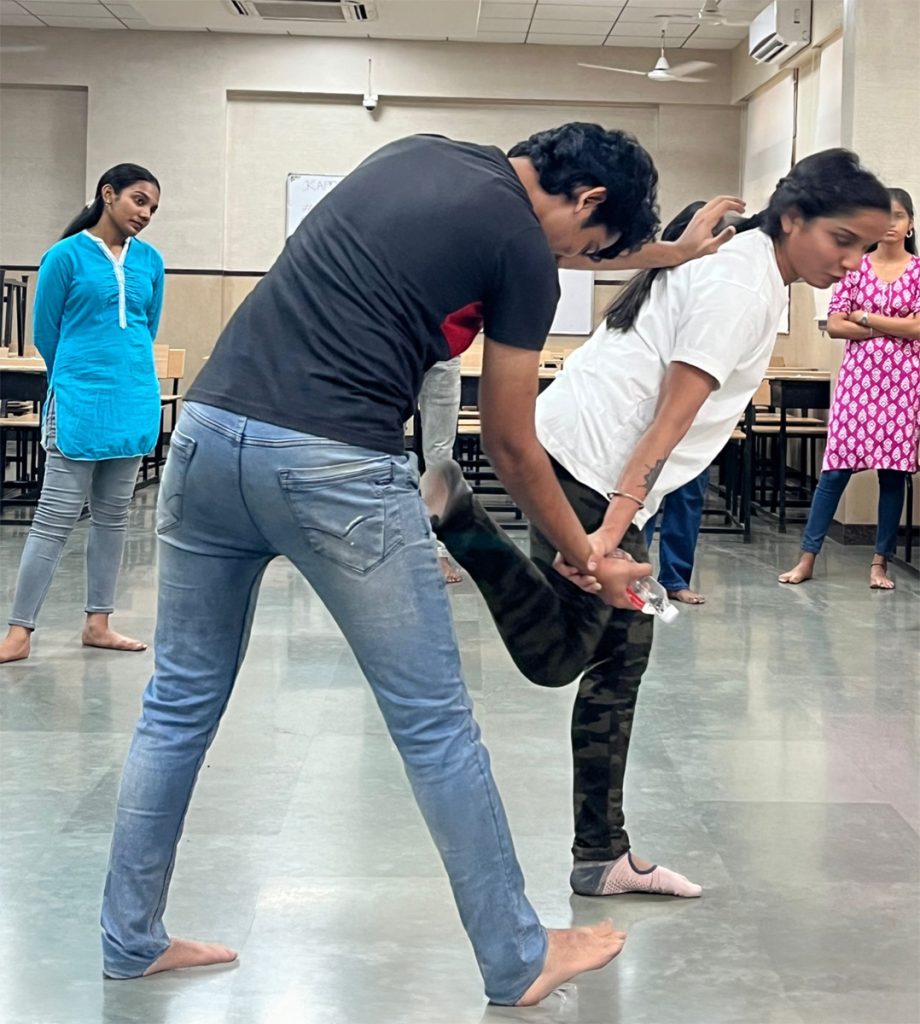
This longstanding project of RC Mumbai Kandivli West had a setback during Covid times for obvious reasons — closure of schools, and only four batches could be done that year. But now it has bounced back, and last year, 15 batches of students from 12 schools were trained.
Now, as ‘thank you’ letters are pouring in from happy principals, the BNI Foundation wants to take it across India as the CSR venture of the corporate BNI India, which is a physical networking platform that organises networking between budding entrepreneurs. “Then these entrepreneurs support and promote each other by giving references for actual business opportunities. They want to expand its outreach to more deserving youngsters in a greater area.”
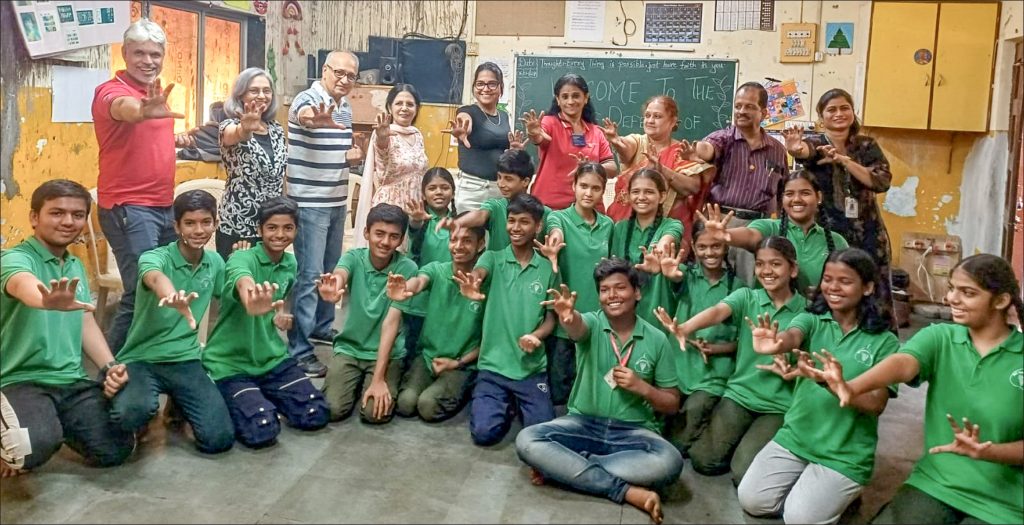
The grand finale of this project was held recently in Mumbai with an elocution competition conducted by club member Reema Wahi and her team. “We are grateful to past president Vinay Bhat for starting this project, which all the presidents of our club have taken forward. More than 7,000 students have benefited till now from it. This year we conducted it for 750 students from 15 vernacular schools which are attended by children from lower socioeconomic background. Rtn Hemu Suvarna, national head of the BNI Foundation, attended the event. We are grateful to Sandip Shah, director of the foundation, and his team for their constant support,” adds Toprani.
Another significant project of the club is teaching young boys and girls the art of self-defence. Club president Prithika Samani and its youth director Raghunath Prabhu organised self-defence sessions for Interactors and Rotaractors. The sessions were conducted by eminent trainers who are national champions and black belts in karate. Different techniques were taught to nearly 100 students followed by practice sessions.
In yet another project done this year by the club, a state-of-the-art CT scan equipment was donated and installed at the KHM Hospital in Mumbai. The entire cost of ₹1.2 crore was given by IPCA Laboratories as a CSR grant and the diagnostic machine was inaugurated by IPCA Laboratory’s MD A K Jain and RID 3141 governor Arun Bhargava in the presence of RI director Lena Mjerskaug (Zones 17 and 18) from Norway.
/two_third]

